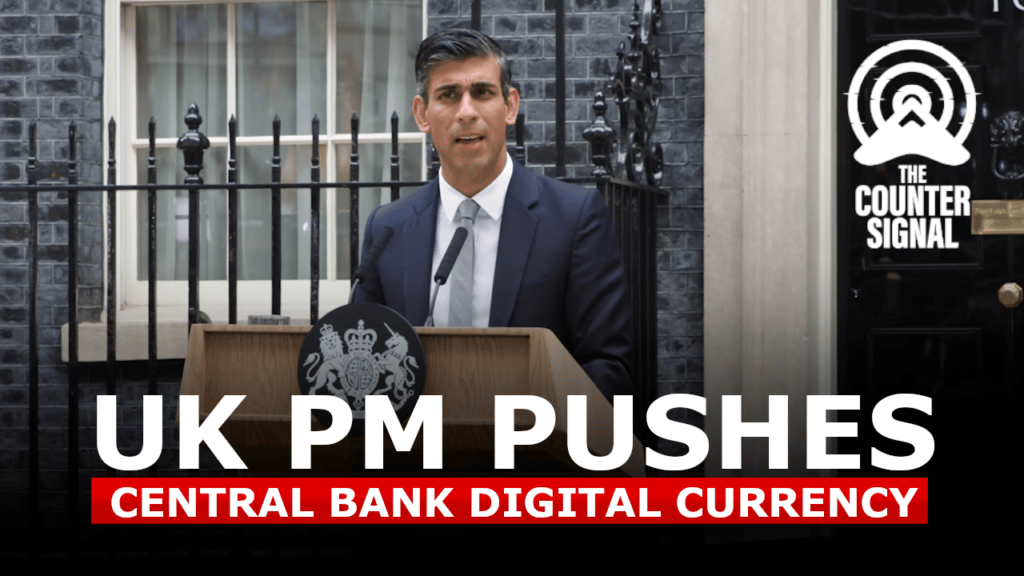British Prime Minister Rishi Sunak is pushing other G7 countries to adopt Central Bank Digital Currencies or CBDCs.

A video of Sunak saying as much is gaining traction online.
The video appears to date back to late last year when Sunak was Chancellor of the Exchequer (head of the UK Treasury), a position he held until he was sworn in as the Prime Minister of the United Kingdom in October.
CBDCs are digital currencies countries propose to replace their current cash, coin and digital entry systems, like the money in your bank account.
People and companies would hold the digital currency in their digital wallets, make payments for the purchase of goods & services, make transfers, and so on.
But unlike Bitcoin, CBDCs would reside on a centralized blockchain rather than a decentralized one, meaning the central bank would have complete control over its issuance and management.
CBDCs & the G7
The G7 announced it’s launching a set of public policy principles for retail CBDCs alongside G7 Finance Ministers and Central Bank Governors.
Sunak, the youngest PM in modern UK history, is broadly seen as crypto-friendly, potentially benefiting the Bitcoin community. But some contend his close ties to banking elites and the World Economic Forum obscures the true intentions behind launching a retail CBDC in the UK and other G7 countries like Canada.
Sunak explained that unlike most of the digital money people use today, the CBDC would be issued directly by a central bank, like the Bank of England in the UK or The Bank of Canada. That implies that central banks, of which most are privately-held corporations, would have complete control over the currency with the potential to bypass governments’ fiscal policies.
For instance, banks could directly tax or deposit funds in users’ accounts.
More concerns and potential dangers of CBDCs
Augustin Carstens from the Bank for International Settlements publicly stated in 2021 that central banks would hold absolute control of CBDCs.
Another concern, already tested in China, is that the central bank may set an expiration date on when certain digital currency holdings can be spent. This feature is currently being considered by teams developing CBDCs to stimulate the overall economy or specific sectors.
Another concern is that CBDCs could directly tax individuals and businesses based on their carbon footprints.









